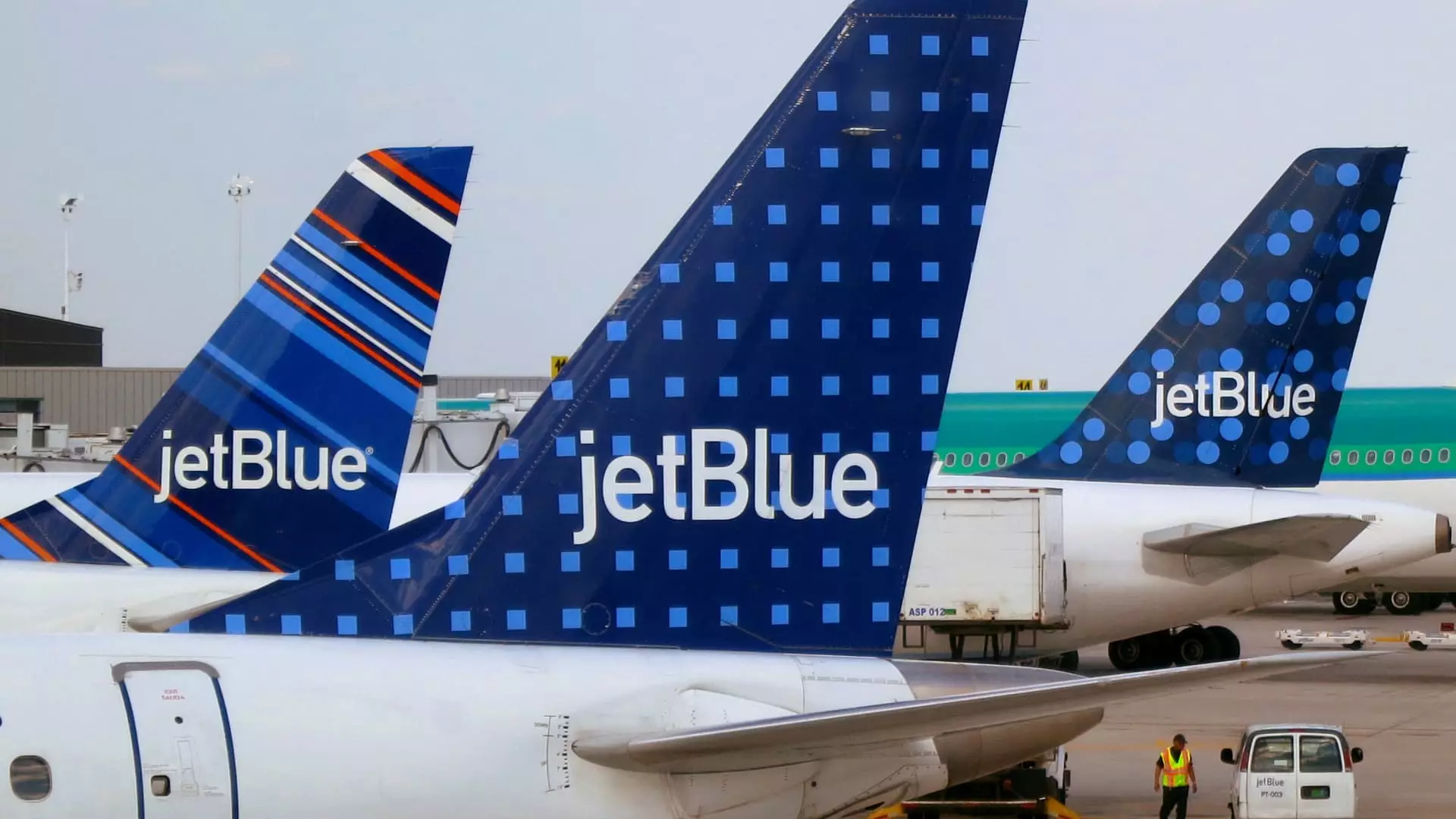The recent enforcement action by the Department of Transportation (DOT) against JetBlue Airways, imposing a $2 million fine for what it describes as “chronically delayed flights,” shines a glaring spotlight on the airline industry’s ongoing struggles with punctuality. This unprecedented penalty is not merely an isolated incident but rather a critical indicator of systemic issues that demand attention from both airlines and regulatory bodies.
Understanding Chronically Delayed Flights
The DOT categorizes a flight as chronically delayed when it is regularly tardy—specifically, if it is operated at least ten times per month and arrives late over 30 minutes more than 50% of the time. The government report reveals troubling statistics for JetBlue: four of its key routes faced extensive delays, with the airline responsible for a staggering 70% of disruptions. The routes affected include connections from JetBlue’s base at John F. Kennedy Airport to various destinations including Raleigh-Durham, Fort Lauderdale to Orlando, and Connecticut.
These chronic delays not only inconvenience travelers but also reflect a disturbing trend in scheduling practices that do not align with operational realities. The airline’s failure to amend its flight schedules to avoid these performance failures highlights a larger issue within the industry—a lack of accountability and foresight in managing flight operations and passenger experiences.
Transportation Secretary Pete Buttigieg made it clear that this enforcement act serves as a stern reminder to the airline sector: flight schedules should mirror the realities of air travel. JetBlue’s delays reflect a broader challenge faced by airlines, particularly in congested airspaces like those over New York City, where delays can cascade and affect numerous flights.
While JetBlue has agreed to the fine, citing the need for improved air traffic control systems and staffing as a significant contributor to their delays, it raises the question of whether airlines are sufficiently proactive in addressing the underlying causes of their operational failures. Echoing sentiments from competitors such as Delta and United, JetBlue asserts that the government’s role is crucial in enhancing the efficiency of the air traffic control system, suggesting a shared responsibility between airlines and regulatory bodies to ensure reliable service.
Broader Industry Concerns
The DOT has signaled that JetBlue is not alone in its struggles, as they are examining other airline operations for similar scheduling inadequacies. The acknowledgment that JetBlue, one of the ten largest U.S. airlines, ranked poorly in on-time arrivals—with only 71.3% of flights arriving punctually—serves as an alarming industry benchmark. Undoubtedly, this situation prompts broader discussions about the sustainability of airline operations and how airlines are prepared to meet growing passenger demands amid increasing travel volumes.
Moreover, the lack of effective remedies for chronic delays raises significant concerns about passenger experience and expectations in a post-pandemic travel landscape that has seen an uptick in air travel. Passengers expect reliability and comfort, and when airlines consistently fail to meet these expectations, it undermines overall trust in the industry.
JetBlue’s case underscores the urgent need for innovation and reform within the airline industry. Not only does JetBlue need to address its operational practices, but the entire sector must reconsider how it approaches scheduling, passenger communication, and service quality to maintain customer satisfaction.
In light of the fine, JetBlue and its industry peers should view this as a catalyst for change. Engagement with regulatory authorities, public transparency regarding operational challenges, and earnest efforts to enhance customer service are paramount. Strategies could include investing in technology that improves scheduling efficiency and implements real-time adjustments when faced with disruptions.
The $2 million fine against JetBlue is emblematic of a deeper malaise affecting the airline industry. It serves as both a warning and an opportunity for transformative change, urging carriers to evolve responsive strategies aimed at enhancing operational reliability and restoring public confidence in air travel. As the travel landscape continues to shift, a commitment to accountability and improvement is more critical than ever.

